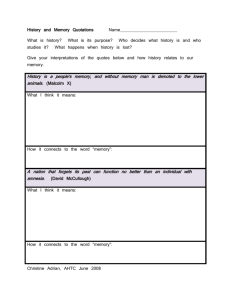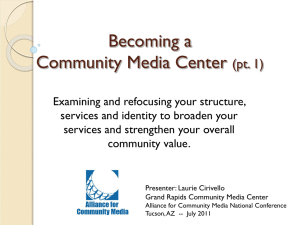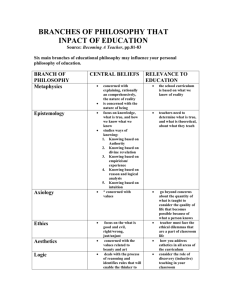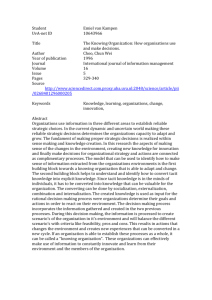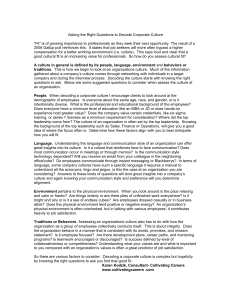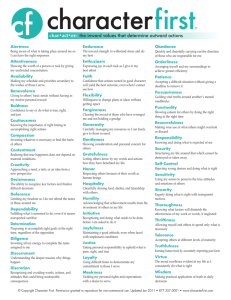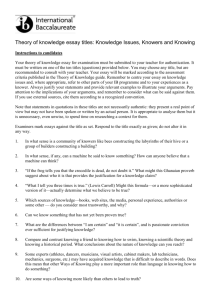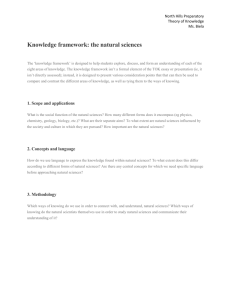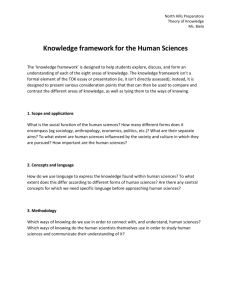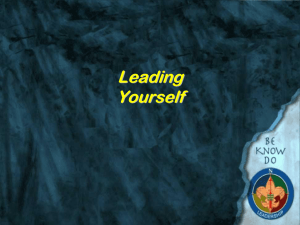TOK – History
advertisement
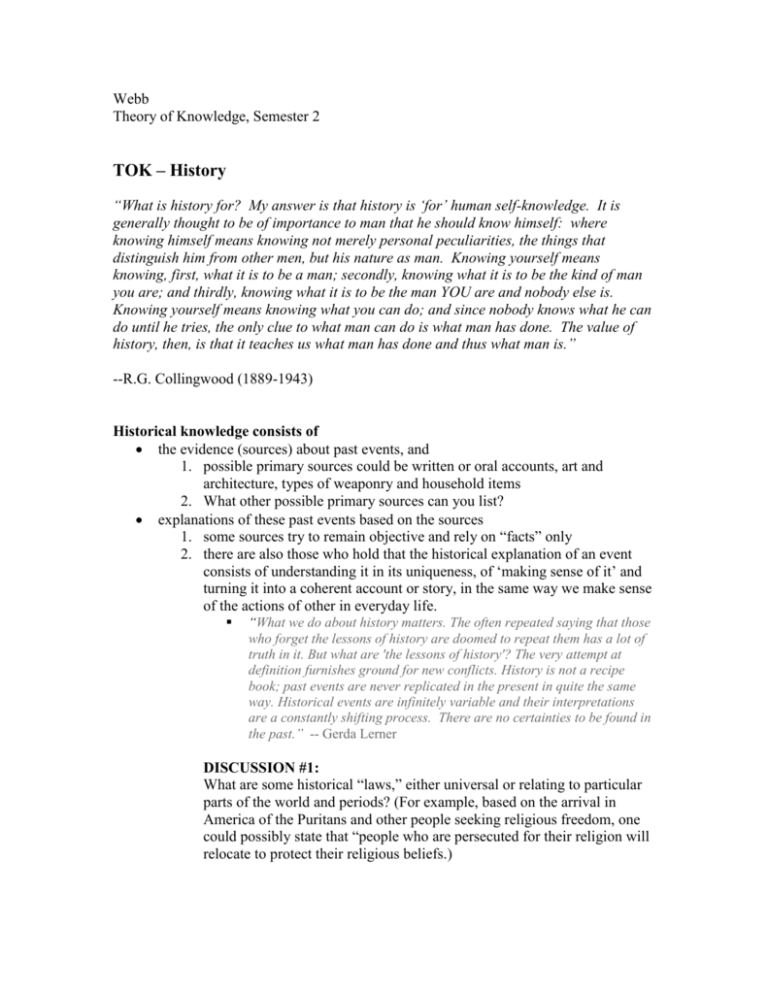
Webb Theory of Knowledge, Semester 2 TOK – History “What is history for? My answer is that history is ‘for’ human self-knowledge. It is generally thought to be of importance to man that he should know himself: where knowing himself means knowing not merely personal peculiarities, the things that distinguish him from other men, but his nature as man. Knowing yourself means knowing, first, what it is to be a man; secondly, knowing what it is to be the kind of man you are; and thirdly, knowing what it is to be the man YOU are and nobody else is. Knowing yourself means knowing what you can do; and since nobody knows what he can do until he tries, the only clue to what man can do is what man has done. The value of history, then, is that it teaches us what man has done and thus what man is.” --R.G. Collingwood (1889-1943) Historical knowledge consists of the evidence (sources) about past events, and 1. possible primary sources could be written or oral accounts, art and architecture, types of weaponry and household items 2. What other possible primary sources can you list? explanations of these past events based on the sources 1. some sources try to remain objective and rely on “facts” only 2. there are also those who hold that the historical explanation of an event consists of understanding it in its uniqueness, of ‘making sense of it’ and turning it into a coherent account or story, in the same way we make sense of the actions of other in everyday life. “What we do about history matters. The often repeated saying that those who forget the lessons of history are doomed to repeat them has a lot of truth in it. But what are 'the lessons of history'? The very attempt at definition furnishes ground for new conflicts. History is not a recipe book; past events are never replicated in the present in quite the same way. Historical events are infinitely variable and their interpretations are a constantly shifting process. There are no certainties to be found in the past.” -- Gerda Lerner DISCUSSION #1: What are some historical “laws,” either universal or relating to particular parts of the world and periods? (For example, based on the arrival in America of the Puritans and other people seeking religious freedom, one could possibly state that “people who are persecuted for their religion will relocate to protect their religious beliefs.) What makes our knowledge uncertain is that the evidence may be unauthentic and incomplete 1. the primary source may have added or omitted certain details to please himself or his customer (or if art, to make a better painting) 2. the primary source may not have been there himself and thus may have incomplete accounts 3. history is often incomplete because we tend to know more about the upper classes of the societies we study because it is largely their doings that were recorded “HISTORY, n. An account mostly false, of events mostly unimportant, which are brought about by rulers mostly knaves, and soldiers mostly fools.” – Ambrose Bierce 4. while we find many ruins in the parts of the world that used stone, little remains of the wooden structures that were common elsewhere. the explanations may be biased. 1. the source may not be impartial and may even be prejudiced DISCUSSION #2 Give examples of how bias may affect the work of historians: take some event in the past and imagine different ways in which its history could be written. 2. the teaching of history often focuses on “episodes” that show that country in its best light, avoiding natural failure and humiliation. “Patriotism ruins history.” -- Goethe DISCUSSION #3 Try to give examples of how the history that you have been taught has reflected a certain view of your country of your part of the world. DISCUSSION #4 Historical events or situations are often used to justify present political actions: an invasion of a hundred years ago is used to justify today’s ethnic cleansing, former British colonies demand compensation from former colonial powers, etc. Discuss whether, and up to what point, such justifications are a valid use of history. The fact that history is subjective, to some extent, and a matter of interpreting the evidence, means that it is possible to give different explanations of the same events, from different positions. This is no proof that they are not valid, nor do we need to choose between them: they are valid to the extent to which they are true to the facts and can show us how the events of the past are related.
![Transformational Change [Powerpoint Presentation]](http://s2.studylib.net/store/data/005447411_1-da0a83bd34bdb90183940ab700125003-300x300.png)
